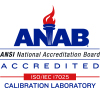 Posted on
Posted on

Plant-based foods have grown in popularity over the past few years, with sales increasing by double digits in 2020. According to Plant Based Foods Association (PBFA), the plant-based food industry is valued at $7 billion with milk as the top seller followed by meat. As the market continues to evolve, so do food safety concerns over the technical challenges of formulating meat alternatives.
Although there is extensive food safety data for meat products, Kerry Health and Nutrition Institute (KHNI) reveals four food safety challenges for meat alternatives.
Levels and Forms of Macronutrients
Unlike milk and meat, macronutrients such as carbohydrates, fats, and proteins are different from plant to plant. Due to the assortment of ingredients, the types of microorganisms and spoilage threshold levels for plant-based meats are completely different than their animal counterparts, which must adhere to established food safety standards.
Higher Microbial Loads
Plant-based meats typically have more ingredients than animal products. To mimic the flavor, texture, and appearance of meat, more ingredients are added to the product. This results in higher microbial loads and different bacteria that are not commonly found in animal products.
Different Regulatory Agencies
Animal products adhere to the United States Department of Agriculture (USDA), however, plant-based meat products adhere to the Food and Drug Administration (FDA). This may cause confusion for best practices as the FDA suggests a minimum cooking temperature of 135°F, whereas the USDA recommends a minimum cooking temperature of 160°F for beef products and 165°F for poultry products.
Processing Methods
Many technologies used for processing meat and poultry products have either not been officially approved for plant-based meats or cannot be applied to plant-based meats. High-moisture extrusion and shear-cell technologies are two of the most common processes used to transform vegetable protein into a layered fibrous structure that closely resembles meat.
Whether working with plant-based products or animal products, both have at least one common factor, time and temperature are key to ensuring food safety. Data loggers are often implemented into a HACCP plan to monitor critical control points throughout cooking, cooling, shipping, and storage.
MadgeTech specializes in data loggers specifically designed for food and meat processors. To find a data logging solution based on your unique processing application, call us at (603) 456-2011 or email [email protected].






